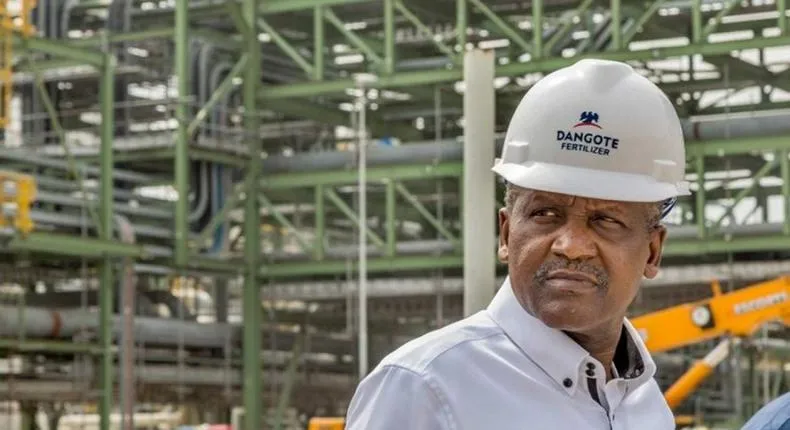Hopes and fears are reverberating in homes and businesses across Nigeria about the possibility of a marginal cut in the pump price of petrol, a stay in the current price of the product, or another surge in cost altogether.
This follows an announcement in the media, Monday, that the $20-billion, 650,000-barrels-per-day Dangote Petroleum Refinery and Petrochemicals Company will commence production and sales of petrol in Nigeria this month (July).
Another source of concern about the flow and cost of petrol in the country is a rising scarcity of the product in recent times in parts of the country, which marketers have blamed on supply challenges on the part of the Nigerian National Petroleum Company (NNPC) Limited, the sole importer of the commodity.
The majority opinion of experts on the subject is that the greatest value that the rollout of petrol from the Dangote project will bring to Nigeria in the short term will be consistent product availability and perhaps price stability.
The largely privately owned Dangote Refinery in which the Federal Government has a 20-percent stake currently refines and sells diesel oil and aviation fuel locally and said it will add petrol to the mix in the days to come. The company was, however, silent on the prospective pricing of the fuel.
Industry watchers say the market dynamics do not call for much optimism around pricing, considering that the company buys the bulk of its raw crude for processing at competitive prices offshore and in US dollars, pays to freight the cargoes home to Nigeria for processing, and is a profit-oriented enterprise.
It appears that much of the hopes for a petrol price slash is hinged on the slash in diesel price from N1,200 per litre to N1,000 per litre in April, largely brought about by the Dangote Refinery.
Meanwhile, Chief Executive Officer of Financial Derivatives Company Limited (FDC), Bismarck Rewane, has advised Nigerians not to entertain the illusion that the Dangote Refinery would guarantee them cheaper supply of refined petroleum products.
Speaking on Channels Television, Rewane said the most the Dangote Refinery would guarantee is improved supply of petrol in Nigeria’s domestic market, but would not affect the foreign exchange position of Nigeria significantly.
“Nobody should expect that the Dangote Refinery is going to make petrol cheaper (in Nigeria). It is going to make it more available at any point in time. I doubt it whether he is going to collect his money in naira because Dangote has costs,” Rewane said.
“Dangote Refinery technically and theoretically is outside Nigeria as it is situated at the export processing zone. We have a deep-sea ports where the ships will take the refined products. But rather than buying from Amsterdam we will buy from Dangote and ship to Atlas Cove, Bonny and Port Harcourt.
“The saving (to Nigeria economy) is that rather than shipping a tanker from Amsterdam to Nigeria, we will be shipping it from Lekki. Another savings is because Dangote refinery is 45 percent more efficient than other refineries because of its cutting edge technology. This will further reduce the cost.
“I think that it is quite clear that it will not solve all our foreign exchange problems because it does not change things much. So, it is wrong notion to say that we spend all our money (FX) importing fuel.
“No, it is our own fuel that is being refined for us abroad, which will now reside with Dangote. Apart from that I do not think that there is any much difference. The reason is that the price differential will probably be on transportation cost. It is not going to change dramatically our foreign exchange situation,” he said.


